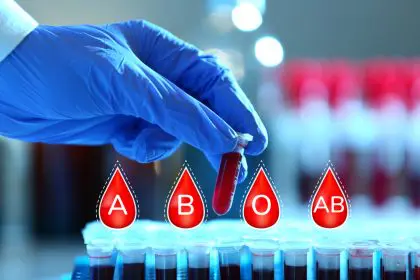Weight-loss injections could help to reduce the risk of cancer. This finding comes at a time when obesity rates continue to rise globally, with significant implications for public health policies and treatment approaches.
That is according to a new study, which suggests that weight-loss jabs, officially GLP-1 receptor agonists, could almost halve the risk of obesity-related cancers. The research represents one of the most comprehensive investigations into the secondary benefits of these increasingly popular medications.
“We do not yet fully understand how GLP-1s work, but this study adds to the growing evidence showing that weight loss alone cannot completely account for the metabolic, anti-cancer, and many other benefits that these medications provide,” Dr Yael Wolff Sagy, the study’s co-lead author, said. The potential mechanisms behind these effects are being investigated by research teams across multiple institutions.
The NHS claims that obesity is the second biggest cause of cancer in the UK. Obesity actually causes more than one in 20 cancer cases, according to the NHS. These statistics highlight the importance of addressing weight management as part of cancer prevention strategies.
But the recent research found that weight-loss injections are 41 percent more effective at “preventing obesity-related cancer”. This significant reduction suggests these medications could play an important role in comprehensive cancer prevention approaches, particularly for individuals at higher risk.
Professor Dror Dicker, who co-authored the study, added: “New generation, highly potent GLP1-RAs with higher efficacy in weight reduction may convey an even greater advantage in reducing the risk of obesity-related cancers.” The development of more effective GLP-1 medications continues to advance, with substantial research investment in this therapeutic area.
Despite this, Naveed Sattar – who is a professor of cardiometabolic medicine at the University of Glasgow – warned that the study “cannot confirm or refute any links of incretin-based therapies [medicines to treat type 2 diabetes] with cancer as the design was not a trial but rather observational”. This caution reminds us of the importance of interpreting results within the context of study limitations.
The research examined medical records from patients who had been prescribed GLP-1 receptor agonists for weight management or diabetes control. The study monitored these individuals over time, comparing cancer occurrence with those not taking the medications but with similar health profiles.
Medical experts suggest that while these findings are promising, they should be considered alongside other established cancer prevention strategies. Regular screening, healthy lifestyle choices, and managing other risk factors remain essential components of comprehensive cancer prevention.
The weight-loss medications have gained significant popularity in recent years. Originally developed for diabetes management, these drugs have shown remarkable effectiveness for weight reduction, leading to their approval for obesity treatment in many countries.
Healthcare systems worldwide are considering how to incorporate these medications into treatment guidelines, especially given their cost and increasing demand. The potential cancer prevention benefits could influence decisions about coverage by insurance providers and national health services.
Patient advocacy groups have welcomed the research, noting that it provides additional justification for expanding access to these medications. However, they also acknowledge the importance of waiting for more definitive clinical evidence from controlled trials.
The findings have prompted calls for dedicated clinical trials specifically designed to evaluate the cancer prevention effects of GLP-1 receptor agonists. Such trials would provide more conclusive evidence and potentially support new approved uses for these medications.
Scientists believe the potential anti-cancer effects might involve several biological mechanisms, including reduced inflammation, improved insulin sensitivity, and changes to gut bacteria composition. These pathways are being studied in laboratory settings and smaller clinical investigations.
The relationship between obesity and cancer involves complex biological processes, including hormonal changes, chronic inflammation, and metabolic issues. Weight-loss medications that address these underlying factors may offer benefits beyond what would be expected from weight reduction alone.
As research continues, medical professionals emphasize the importance of personalized treatment approaches. While these medications show promise, they are most effective when used as part of a comprehensive health strategy that includes dietary changes, physical activity, and behavioral support.
For patients concerned about both weight management and cancer risk, these findings offer an encouraging perspective, though experts recommend consulting healthcare providers for individualized advice rather than self-prescribing or seeking medications through unofficial channels.















